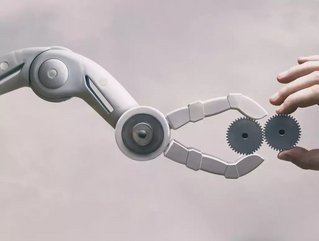Why People Are the Most Important Part of Every Supply Chain

There’s a tendency to think about supply chains more in terms of “processes” than “people.” Even those of us who work in the business are prone to it. To be fair, processes are at the core of procurement. Manufacturers create goods, then those goods move from warehouse to warehouse and get shipped around the world. Data is exchanged between computers, boxes are ticked, and deliveries are made.
It’s a process-heavy world, and yet, wherever you find a process, you’ll find a person nearby. Even the most automated manufacturing operations are overseen by people. Shipping and distribution happen via ships, planes, and trucks that are piloted or driven by people. It’s the same story with the infrastructure and systems that store and transmit data.
And of course, the foundation to all of that is also people – suppliers and buyers engaging and interacting with each other to figure out whether their companies can form successful partnerships. Down the road, when it’s time to evaluate those partnerships or possibly renegotiate terms (all crucial aspects of procurement), it comes down to – you guessed it – people once again.
However, that’s not why people are the most important part of your supply chain. The real reason is something more subtle; something that the COVID-19 pandemic reaffirmed in a big way; something that flies under the radar when things are going well but becomes all too obvious in times of disruption.
Why People are Imperative to Procurement
Procurement is all about push, but when the pandemic turned push to shove, a different paradigm emerged. Suddenly, it didn’t matter how great your margins were. Success was a matter of being able to even get the things you needed to sustain your business model, and on top of that, a matter of being able to provide your products or services to your customers.
One study estimated that 163 Fortune 1000 companies had Tier 1 suppliers in Wuhan, China, at the time of the outbreak, and over 900 had Tier 2 suppliers in the region. In the following weeks and months, many businesses realised (too late) that Tier 1 visibility wasn’t enough to manage the risks in the supply chain. The learning curve was steep, but the lesson was clear: To sufficiently understand and mitigate risk in the supply chain, you need not only visibility into all suppliers but also visibility into the markets in which those suppliers operate.
Since the outbreak, companies have taken supply chain transparency more seriously. Ask almost anyone in procurement, and they’ll tell you there’s been a shift in focus from “find the bottom dollar” to resilience, robustness, and sustainability. Obviously, this will benefit not only individual companies but the global economy (including consumers) in the long run.
Could a machine have extracted that vital knowledge out of the chaos that was COVID-19 or brought that paradigm shift to the attention of executives? Not in our lifetimes. It was people who identified the weaknesses and people who started shoring them up.
It didn’t just happen at the high level, either. Down on the ground in real-time, it was people – not established processes – that helped businesses find their way through the COVID-19 fog. Wherever you found an innovative solution to a problem posed by the pandemic, it was the product of human ingenuity. From curbside pickup to reinventing the restaurant, the power of human thinking is what prevailed to sustain businesses despite supply chain weaknesses.
Recognising and respecting the human element of procurement is more important now than ever because many of the human contributions to supply networks referenced earlier in this article – e.g., driving trucks and maintaining databases – will increasingly become the domain of technologies like automation, robotics, and artificial intelligence. The point to understand is that even as this change of guard unfolds, the importance of humans won’t be diminished – it will be increased.
For evidence, consider the tale of Tommy, a robot designed to aid nurses. Tommy wasn’t designed to lessen the impact of a pandemic, but when COVID-19 came along, that’s exactly what it did – however, it took human healthcare providers to recognise Tommy’s potential benefits and put them to use in the right way. No matter how many generations of Tommy come along, and no matter what other new technologies join in the fray, it’s people who will be responsible for implementing those advancements.
The bottom line is that supply chains are inherently human-centric, so a focus on people is necessary in order to keep things running smoothly.
So, what can happen when that focus isn’t there?
Negative press around the treatment of employees helped drive Tyson Foods’ stock price down 28% in 2020.
Boeing’s shaky standing in the commercial aircraft industry due to its 737- and 787-related woes over the last several years is largely the result of how people are treated and managed.
Does having great people mean you don’t need great processes or healthy margins?
No. Successful supply chains are made up of all the above. But, as companies rush to solve pressing problems, compete in ever-tougher markets, and embrace the technology of the future, it’s vital they remember each of those key ingredients. Inevitably, the best supply chains of tomorrow will have people at their core, so those are the ones we need to build today.
- What is The White House's Sustainable Procurement Programme?Sustainability
- Top 100 Women 2024: Taryn Thompson, Bank of America – No. 8Operations
- Joshua Dubroff, CPO joins P&SC LIVE New YorkDigital Procurement
- Why Procurement is Key to Unilever's Climate Transition PlanSustainable Sourcing






